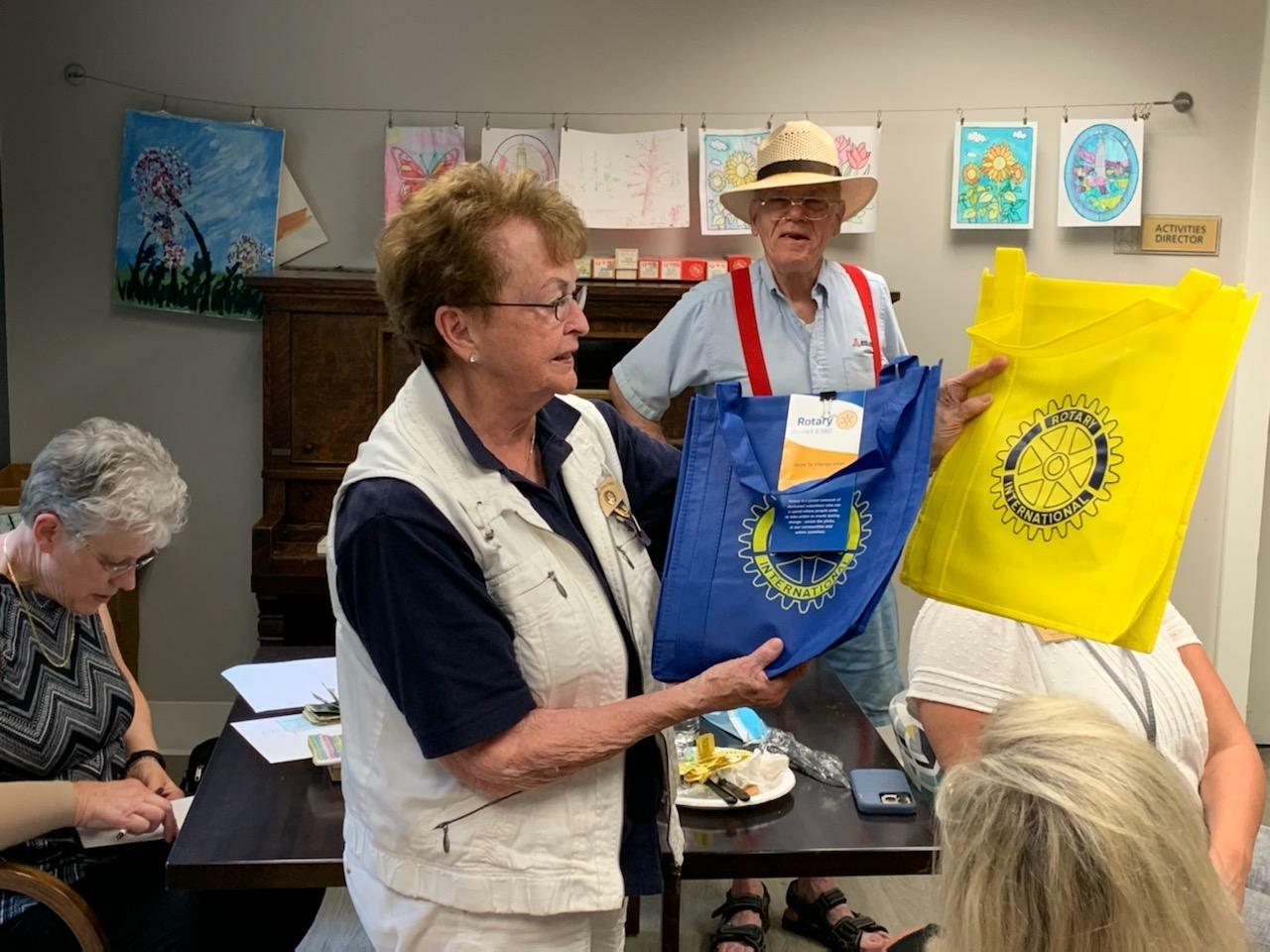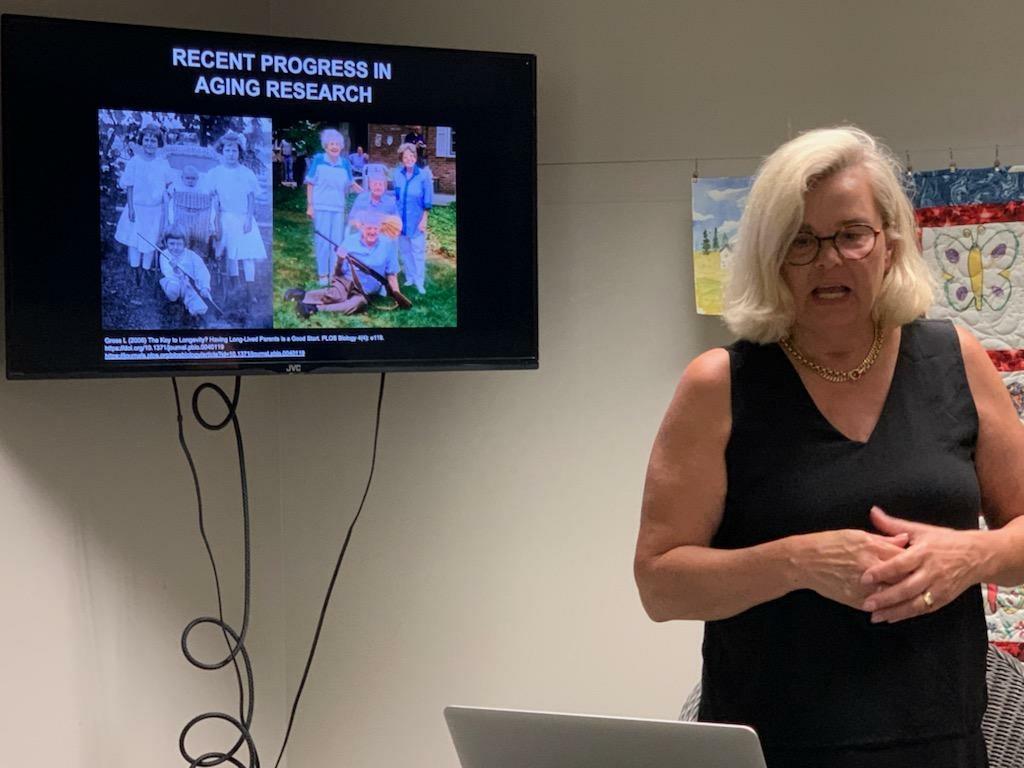At the July 28, 2022 Rotary Club of Ann Arbor North Lunch Meeting on July 28th, Dr. Ursula Jakob's talk about aging research. Ursula is a professor of Biological Chemistry at the University of Michigan.
Ursula started out telling the club that life expectancy in the United States is 79.05 years.
How do we study aging? Gerontology is the study of the physical aspects of aging, as well as the mental, social and societal implications of aging.
We study aging because from a public health perspective, aging is also the critical risk factor for a variety of human pathologies, including neurodegenerative diseases such as Alzheimer's, many forms of cancer and metabolic disease/type II diabetes, which have become much more prevalent in the elderly.
Aging Scientist's study aging by using yeast, worms, fish, mice etc...
Ursula talked about anti-aging inventions that extend life expectancy:
- Calorie Restriction: A dietary intervention that is low in calories but maintains proper nutrition, is the only intervention known to date that consistently decreases the biological rate of aging and increases both average and maximal lifespan.
- Rapamycin: Rapamycin treatment late in life can increase lifespan and reverse the age-related decline in cardiac function, vascular dysfunction, and cognition in mice.
- Metformin: Metformin works by helping to restore the body's response to insulin. It decreases the amount of blood sugar that the liver produces and that the intestines or stomach absorb. Preliminary studies suggest that metformin may actually slow aging and increase life expectancy by improving the body's responsiveness to insulin, antioxidant effects, and improving blood vessel health.
- Exercise: physical activity and exercise are well-established countermeasures against muscle aging, and have been shown to attenuate age-related decreases in muscle mass, strength, and regenerative capacity, and slow or prevent impairments in muscle metabolism.
- Hormesis: Hormesis is a phenomenon in which adaptive responses to low doses of otherwise harmful factors (also called mild stressors) make cells and organisms more robust.
Also at the meeting Gail Scott showed us the Rotary Reusable Bags that we are giving out at the Farmer Market this year. The first one is coming up in a few weeks.
Dr Ursula Jakob talks about aging.

Gail Scott shows off the Rotary Bags for the Tote Bag/Membership Project.
